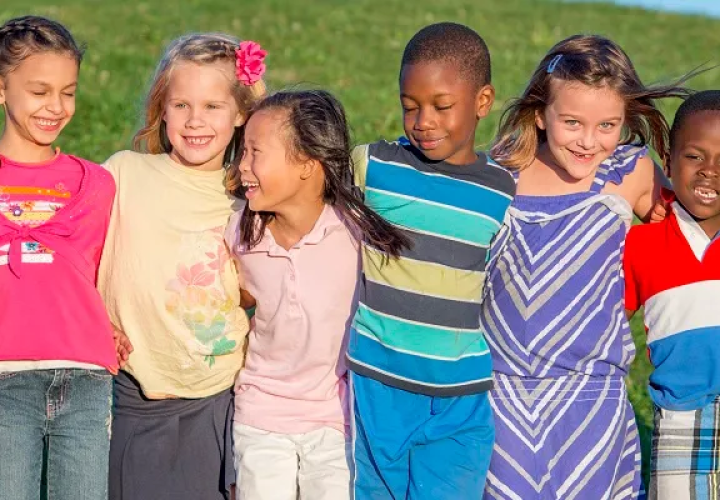On the Partner’s In Health website, Dr. Paul Farmer is quoted: “The idea that some lives matter less is the root of all that is wrong with the world.” This quote has been on my mind of late, particularly with regard to children because all children’s lives matter.
As news from our Southern border continues to pop up – from separation of children from their parents, to the deaths of seven migrant children over the past year, to children being detained in cruel and inhumane Customs and Border Control facilities where news reports state they live in filth in metal cages, sleeping on cold, hard concrete floors with insufficient food, water, toilets and hygiene products – those of us who care for children feel Dr. Farmer’s quote reverberate. Recently Dr. Kyle Yasuda, American Academy of Pediatrics (AAP) President, sent a message to AAP members urging pediatricians to speak out to demand medical care and humane treatment for these children. All children’s lives must matter.
To compound their inhumane physical and emotional trauma, these children are also experiencing multiple and severe toxic stressors that will have significant and lifelong effects on their well-being. Children undergoing this level of trauma will have alterations in the architecture of their developing brains that affect the development of linguistic, cognitive and social-emotional skills. They will be at increased risk for anxiety, depression, learning disorders, and mood dysregualtion. They need stable and supportive relationships that provide some degree of resilience and protect them from the damages of this stress, and yet they are separated from the adults to whom they are securely attached. Their long-term health and future is in peril. All children’s lives must matter.
The Southern border is not the only area of the country where vulnerable children and their families are at risk. Recent data from the Centers for Disease Control and Prevention show that more than one in five children under the age of 18 in the United States are living in poverty, with children of color comprising a higher percentage than their white and Asian counterparts. In the most recent Connecticut state poverty report, 19 percent of Black and 21 percent of Latino children were living in high-poverty areas. We know poverty is a toxic stressor that cascades across multiple developmental spheres, affecting children’s long-term growth, cognitive and social functioning, self-efficacy and overall health and well-being.
Multiple studies over the years have shown zip code to be the greatest predictor of life expectancy. Social safety net programs such as the Supplemental Nutrition Assistance Program (SNAP), the Special Supplemental Nutrition Program for Women, Infants and Children (WIC), the School Lunch Program, and the Children’s Health Insurance Program (CHIP) provide valuable nutrition and health care for these children and can help mitigate some of the aggravating factors of poverty. Children who are well fed and healthy have better school outcomes and are more likely to succeed.
Yet the current Public Charge rule proposed by the Department of Homeland Security would include any use of a government program for support by immigrants as a heavily weighted negative factor in the consideration of whether to allow entry into the country or issuance of a green card. According to the AAP, following the new Public Charge proposal in 2018, Medicaid and CHIP enrollment numbers were down by approximately 840,000 nationwide. In addition to reductions in health care coverage, participation in the SNAP, the country’s most important anti-hunger program, and WIC have both seen declines in enrollment. According to the United States Department of Agriculture, the WIC program saw its largest single year decrease in the history of the program. While some of the decrease may be due to improved economic conditions and fewer people qualifying, many who qualified did not sign up. Even children who are citizens are being denied benefits that could help them because of their immigrant parents’ fear. Children of illegal immigrants also commonly live in fear of separation from their parents due to deportation, an additional toxic stress that impairs their health and functioning.
The recent Biennial Childhood Obesity Conference that I attended in California was themed tackling root causes. As with other poor health metrics, more children living in poverty have obesity, with the prevalence inversely correlated with income. Inequity exists with access to healthy food, housing, employment, green and safe places to play, and many other social determinants of health. Disadvantaged children are more than twice as likely to be diagnosed with obesity as children living in advantaged areas. The food and beverage industry practices more frequent predatory marketing of unhealthy foods and sugar sweetened beverages to poor children and children of color, contributing further to poor food and drink choices and the development of obesity and its comorbidities.
Health is foundational for a community and for the economy, and we need to speak out on many levels against maltreatment and inequity on behalf of all children. Advocacy is crucial, as these children need people in power to speak out on their behalf. Our children are our future. All children’s lives matter, and they deserve an equal opportunity to thrive.
Follow Advancing Kids by Email
Enter your email address to follow this blog and receive notifications of new posts by email.
